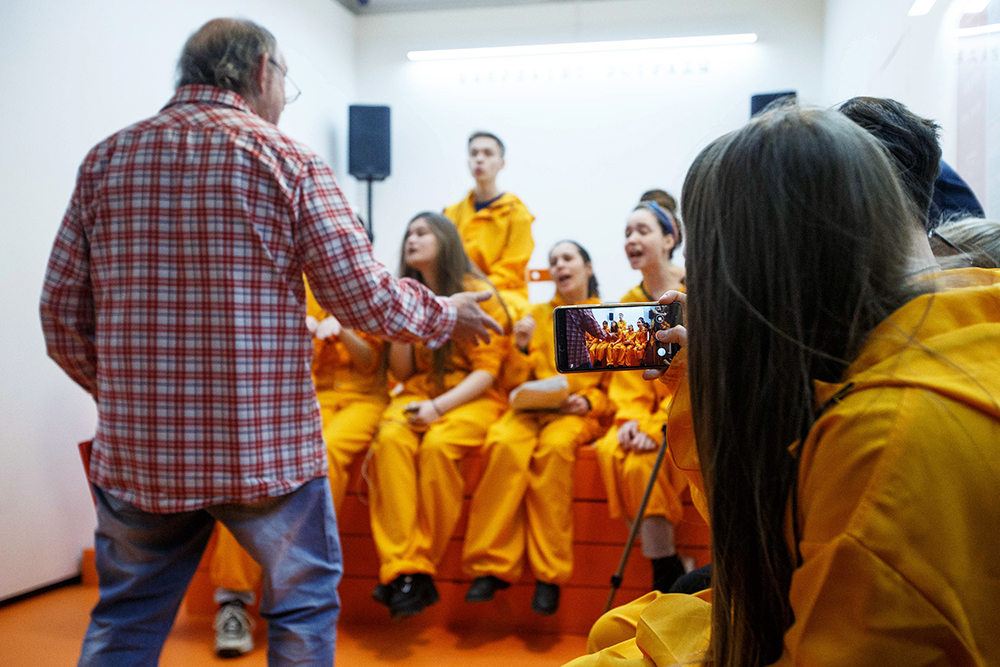Course overview
Students study the following professional disciplines:
- Directing and acting art;
- Stage speech;
- Stage movement;
- Stage fight;
- Fencing;
- Vocal ensemble;
- Solo singing;
- Make up;
- Solfeggio;
- Drama theory;
- Theatre staging work;
- History of directing;
- History of costume;
- Vocal art technique;
- Variety director’s staging work;
- Variety act dramaturgy, etc.
Studying on the basis of Stanislavsky and Nemirovitch-Danchenko classic school, future directors study special theoretical literature, learn to build perception zones and get to know how to involve the viewers into the on-stage events. A lot of attention is paid to the organization of the rehearsal process, development of the stage composition thinking and learning of the event-based analysis of the literary, dramatic and music texts. Aforementioned skills are just a few of the directing art elements learned by students during this course.
Theory
Apart from that, students obtain a full cycle of liberal arts education: history, history of Russian and foreign theatre, history of Russian and foreign literature, history of the cinema, music, philosophy, pedagogics and psychology, etc.
Practice
Starting from the 2nd year students can stage performances together with acting students. They participate in various international festivals, competitions, shows.
Language
Foreign students study Russian language for 5 years, therefore getting a good knowledge of the Russian language as a bonus.
Diploma
After the graduation they get state diploma, valid throughout the world.
Special feature
Special feature of GITIS education at Theatre Directing is that actors and directors study together for 4 years, and during the 5th year directors stage graduation performances in Russian theatres and abroad.


